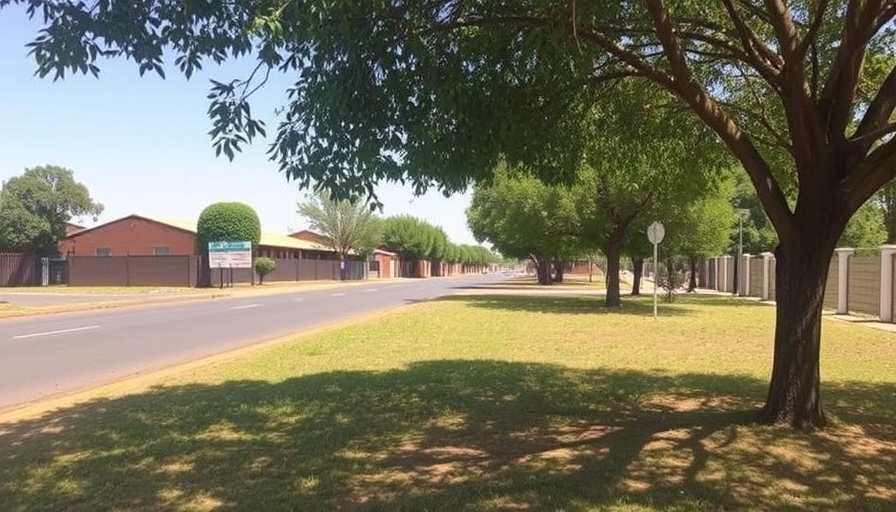
Unmasking the Shadows: Gender-Based Violence in South Africa
In a chilling incident that highlights the persistent issue of gender-based violence (GBV) in South Africa, Limpopo police are on the hunt for a suspect involved in the alleged rape of a 16-year-old girl on her way to school. The importance of addressing GBV cannot be overstated, as it remains a daunting reality for many women and girls across the country.
The Societal Implications of Gender-Based Violence
South Africa's alarming rates of GBV have led to national outcry and calls for urgent reforms. This recent incident coincides with a growing public demand for accountability from law enforcement and a more robust governmental response to protect vulnerable populations. Such acts of violence cast a shadow on the country's promise of equality and safety for all citizens.
Effects of Crime on Education: A Disturbing Connection
The impact of crime, particularly GBV, extends beyond the immediate physical and psychological harm suffered by victims. Education, a cornerstone for socio-economic development, is severely hampered when students, especially girls, face the fear of violence in their daily lives. This incident serves as a stark reminder of the barriers young individuals encounter, which undermine the promise of a brighter future through education.
Public Awareness and Action: A Community Responsibility
Engagement from all sectors of society is essential for tackling GBV. Initiatives aimed at raising awareness, educating communities, and breaking the stigma associated with reporting such incidents can empower potential victims. The collective voice of communities, civil society, and government bodies can foster a culture that prioritizes safety and human rights.
Amplifying Voices: Advocacy and Legislative Changes
Despite ongoing challenges, there is a glimmer of hope — increasing advocacy efforts focused on both prevention and support for victims. Legislative frameworks must evolve to more effectively tackle GBV, emphasizing swift justice and substantial support systems. Such changes are critical as South Africa moves towards a society where the rights of every individual, particularly women and girls, are respected and upheld.
Future Directions: Ending the Cycle of Violence
In order to address GBV effectively, comprehensive policies that include educational reforms, community-based interventions, and increased law enforcement accountability are necessary. By prioritizing gender equality and ensuring safe environments for all, South Africa can begin to dismantle the systemic inequalities that perpetuate violence against women. It's imperative that citizens remain vigilant, advocate for legislative changes, and create spaces for dialogue about GBV to spur a collective movement toward safety and equity.
As this case progresses, it is vital for South Africans to remain engaged, hold authorities accountable, and support initiatives that fight for the rights of victims. Change, though challenging, is possible when communities come together to advocate for a safer future.
 Add Row
Add Row  Add
Add 




Write A Comment